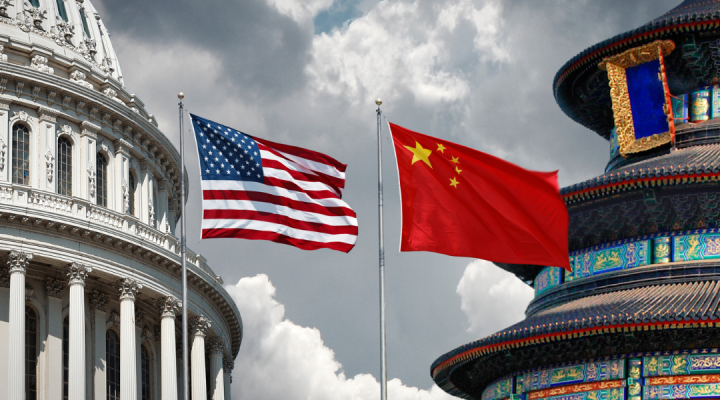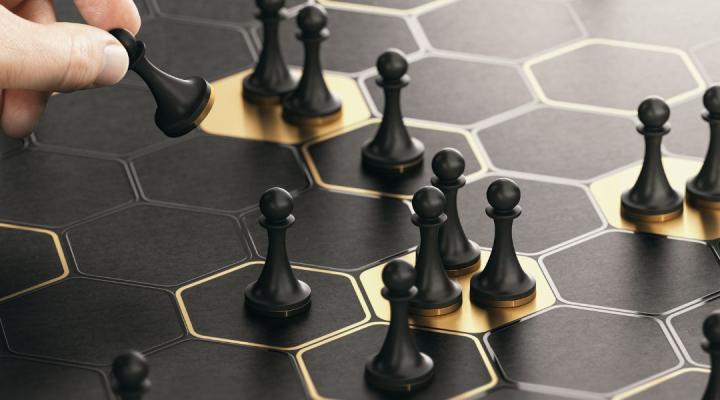Reflections on negotiations during the Cuban Missile Crisis from the Director of the Oxford Programme on Negotiation.
Having just finished Max Hastings’ excellent but chilling account of the 1962 Cuban Missile Crisis - The Abyss - when all out nuclear war was a distinct possibility for much of the planet - it’s difficult not to draw some parallels with today’s global situation.
Thankfully the world isn’t as close to the brink as it was in 1962 where the actions of multiple parties - from submarine captains to those manning the anti-aircraft stations in Cuba - could have led to events spiralling out of control.
Yet Vladimir Putin’s escalating nuclear rhetoric and the fact that relations between the United States and Russia are just as fractious as they were 61 years ago, means that parallels can be drawn and lessons learned when it comes to negotiating out of a crisis. What can we learn from John F Kennedy’s actions?
Provide an off ramp
One useful tool when it comes to a negotiation is to try and write your counterpart’s victory speech. How can they sell a deal to their stakeholders or their public? Even if it’s just a symbolic victory, how can they come away from the negotiation claiming some degree of success?
Part of the genius of Kennedy’s negotiation style during the Cuban Missile Crisis is that, despite the almost unanimous advice of the military and other advisers to invade Cuba, he never lost sight of the need to give Soviet leader Nikita Khrushchev the space to back down with honour and credibility intact. In this case, Khrushchev could point to a US undertaking to respect Cuba’s sovereignty in exchange for removing nuclear missiles from the island.
Kennedy pressed down on the point just a few months later when he said: ‘while defending our vital interests, we must avert confrontations that force an adversary to choose between humiliating defeat and nuclear war.’

Fast forward to the present and Putin - despite all the horrors he has unleashed - will need such an off ramp as well. Whether this will require some acceptance of territorial losses, a commitment that Ukraine will never join NATO or other forms of accommodation remains to be seen. What is clear is that the more Putin feels boxed in, the greater the danger of events spiralling out of control.
Some issues should remain under the table
While we often encourage full transparency when it comes to negotiations and final deals, there are times when it’s better to keep some things away from the public eye.
One such example in 1962 was the US undertaking to withdraw its Jupiter nuclear missiles from Turkey in return for the deinstallation of nuclear weapons on Cuba - the full details of which only came to light in 1989. While the US administration made clear that the deal would be off the table if it ever saw the light publicly as a quid pro quo (for fear of undermining the NATO alliance), there’s no doubt that the Turkey concessions became an important element of the negotiations and the de-escalation of tensions.
The same applies if we are to have a negotiated agreement in Ukraine where it might be best for some particularly sensitive issues to not be played out under the glare of public opinion.
Focus on process
All negotiations operate as part of a process. Process helps structure a negotiation and when negotiations face difficulties, a process can often help keep things on track.
Back in 1962, there was an alarming lack of process. Information on activities, such as the downing of an American U2 spy plane over Cuba, often took days to get back to the leaders; and there were a confusing number of diplomatic channels with many players, such as the Soviet Ambassador to Washington and the top Soviet diplomat at the UN, having no greater insight into Khrushchev’s thinking than the Americans.
When it comes to Ukraine, the beginnings of a process need to be put in place early from a possible site for negotiations (Istanbul would appear the favourite if Turkish President Erdogan remains in power as he has positive relationships with both sides) to a list of issues to be covered (a neutral and secure Ukraine, some kind of autonomy in the Eastern Donbas region etc), clear communication channels and an established role for third parties, such as the United Nations (UN).
First things first however, there will be a need for some kind of ceasefire to create the space for more substantive diplomacy and negotiations to take place. Confidence building and tension reducing measures, such as prisoner exchanges, will also form an important part of the process.
The importance of third parties
An often understated role in the Cuban Missile Crisis was the role of the United Nations (UN).
While there’s no doubt that Kennedy and his advisers called the shots, the UN played an important role proposing an end to the US naval ‘quarantine’ of Cuba (note Kennedy’s use of language rather than the more adversarial ‘blockade’) and that the Soviets halt shipments to Cuba.
The UN also played a key role in the implementation of the agreement with much effort going into persuading a reluctant and bitter Fidel Castro (the Cuban leader at the time) to accept some form of oversight. Again in Ukraine, if we are to see a lasting settlement, the role of an organisation, such as the UN, will be vital.
When it comes to other third parties, it’s also interesting to see what role China will play in future negotiations. The last few weeks have seen President Xi Jinping take a more balanced approach to both sides with Li Hui, China's special representative for Eurasian affairs and former ambassador to Russia, visiting Ukraine. In addition, President Xi spoke directly with Ukrainian President Zelenskiy in late April.
Signal and strengthen your alternatives
The final lesson I would cite from the Cuban Missile Crisis is the importance of signalling but also strengthening your alternatives.
On 18 October 1962 in the heart of the crisis, Kennedy faced almost unanimous backing (even from his brother Bobby Kennedy although he often - at the behest of the President - played devil’s advocate) for an air strike followed by a full scale invasion of Cuba which could have led to all out nuclear war.
It is to Kennedy’s eternal credit that he had the strength to face this down and pursue diplomatic solutions. However the fact that there was a clear alternative with a huge military build-up in South Florida made Khrushchev realise that the US was serious and that there was only real one course of action – withdraw the missiles.
The same must be the case in Ukraine as well, as the West continues to support Zelenskiy. Any doubt as to the West’s resolve and the bloodshed is likely to continue with no incentive for Putin to look at negotiated alternatives. That’s why the US Presidential elections in November 2024 will be so important.
As Hastings himself says in The Abyss, 'the scope for a catastrophic miscalculation is as great now as it was in 1914 Europe or in the 1962 Caribbean' and 'in 1962 the world got lucky’.
While there are few signs of a de-escalation in Ukraine at present, it’s vital that the negotiation skills Kennedy showed in 1962 ultimately prevail again this time.




